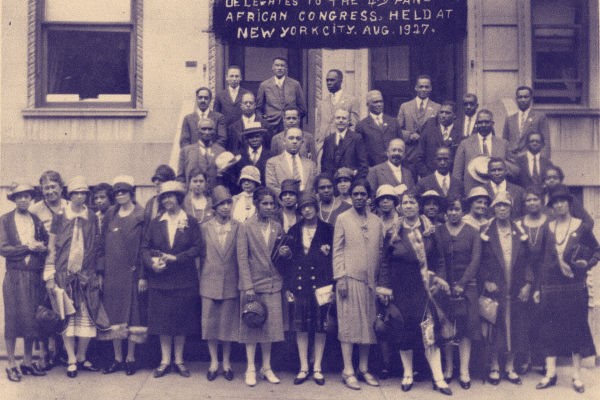I first heard the phrase “political correctness” on the Berkeley campus in the 1970s, from the lips of a Marxist activist office worker. It was self-mockery: we may be in class struggle, but let’s have a sense of humor. She and her comrades took a stern, old Communist Party phrase—assessing whether one adhered sufficiently to doctrine—and punctured its sanctimoniousness. As in: “We had to eat where he wanted. It was PC, because he comes from a real proletarian family.”
In the 1990s conservatives grabbed the term, stripped it of its humor, and cudgeled leftists with it. The heyday of the PC battles is behind us, although an occasional spitting contest still breaks out, such as the brouhaha surrounding a recent New York magazine essay by the political journalist Jonathan Chait. Beyond the name-calling, however, remains a real concern about how political correctness impedes thinking.
“Political correctness” or “politically correct” almost never appeared in American books or newspapers until the early 1990s. Through 1989, “political correctness” appeared in only seven New York Times articles and letters; just two years later, it appeared in ninety-six. After peaking in the mid-1990s, the phrases’ appearances declined by about half.
The ’90s were years of intense controversy over proposed national guidelines for teaching American history, the IQ-and-race implications of The Bell Curve (1994), college syllabi, and leftish efforts to create a public etiquette and language for referring to disadvantaged groups—“womyn,” “differently-abled.” Conservatives cried political correctness to blunt complaints about racist and sexist slurs and to fend off demands to diversify the historical and literary canon. Barbarians were on the loose, they warned, torching civilization. Criticisms and mockery of leftish PC were everywhere: in learned essays, on unlearned talk shows, even in a best-selling book of fairy tales retold in the vocabulary of political correctness. Snow White was “a target for this type of colorist thinking” and hung around with seven “vertically challenged men.”
PC-ness tends to close off important, if uncomfortable, topics, such as the connection between biology and behavior.
The right put the left on the defensive. Yet a lot of the language the left targeted did change. Gays are no longer fags and we say “n-word” rather than the n-word. A few surveys even show that Americans generally do not consider political correctness to be a bad thing.
In many circles—parts of the academy, government, and national media—PC norms press people to guard their language and even ideas from giving offense to certain groups. At the same time, the right does its own thought policing: for example, shaming candidate Obama into wearing a flag pin and President Obama into endorsing “American exceptionalism,” insisting that every person in uniform is a hero “making a sacrifice,” and baying that “happy holidays” is an insult to Christians.
I have broader concerns than language etiquette, which is largely how political correctness is understood these days (one PC defender disingenuously claimed recently that 98 percent of it is “just manners”). Right-wing PC often blatantly censors by, for example, de-funding research on the health consequences of widespread gun ownership, silencing discussion of evolution, and denying climate science. Leftish PC distortions are more subtle and, from a progressive point of view, more in need of repair. They dictate the issues worthy of attention and the conventional understanding of them, thereby masking clear views of the social world, leaving the science to others, and alienating the left from the general public.
Much of leftish PC is victimology, specifying who are properly to be considered victims and insisting that they not be blamed for their victimhood. (Conversely, libertarians, assuming the myth of autonomous self-creation, rarely acknowledge any innocent victims besides themselves.) In my own profession, this premise leads to repeated descriptions of how members of this or that distinctive, disadvantaged group are, through no fault of their own, screwed. True and important. But this repetition leaves less space for the concerns of many other people—say, those in the great middle-class. Indeed, as personal identity issues came to the fore in the ’70s and ’80s, even the working class slipped down the list of appropriate subjects.
PC-ness tends to close off important, if uncomfortable, topics, such as the connection between biology and behavior. Sociologist Jeremy Freese has long argued that it does his colleagues little good to disdain research on genetics; science journals go on to publish ever more genomic analyses of behavior, and the public largely believes that genes shape personality and life success. Ironically, although many on the left dismiss some genetic explanations, such as Larry Summers’s musing about women’s under-representation in math, they embrace others, notably of homosexuality.
Leftish PC has, in particular, tried to close the question of genetics and intelligence. Yet, much work proceeds, especially now with the boom in neuroscience, on the premise that the two are strongly connected. And the public believes it. Meanwhile, white people have largely gone silent on the most taboo issue: inherent race differences in ability. Today black survey respondents more often cite “inborn ability” as an explanation for racial differences in success than whites do.
Another sensitive topic, discussed in this space in 2012, is the degree to which culture explains why poor people are poor. Once in a while, a provocateur—for example, Charles Murray, again—stirs that pot, but PC conventional wisdom dismisses the argument as blaming the victim. Here, too, the general public sees things differently. Most Americans prefer character-driven explanations, especially laziness, for poverty. Indeed, people closest to the poor often give such accounts. Sociologist Sandra Smith has been studying whether and when working-class employees recommend others in their communities for jobs. Strikingly, many are not willing to do so, on the grounds that the job seekers are, in their opinion, insincere and lacking in work ethic. Whether or not such explanations are valid, they should not be dismissed outright as victim blaming.
Of course, not everyone on the left is merely dismissive. One can find in both scholarship and journalism many serious treatments of cultural and sociobiological questions, including a book I coauthored fiercely challenging The Bell Curve. But typical PC rhetoric tends not to deploy such sources and instead rejects the topics as illegitimate, prejudicial, or hurtful. This is not a winning strategy, especially when the general public does seriously entertain such un-PC thoughts.
Criminal justice, too, is an area in which PC conventional wisdom hampers open inquiry. Yes, Americans vastly over-incarcerate their fellow citizens, but we do so in part because before the prison boom the country suffered high levels of street crime and violence and still does by comparison to many similarly situated nations. There are “bad guys,” and whatever one’s preferred explanation for why there are—the left’s emphasis on structural disadvantages or the right’s on moral failings—members of the public, especially blacks, are fearful. Since the 1960s liberals have tended to minimize this threat.
And people who ask why disproportionately lethal violence has emerged within and from Islamic countries are often to treated to another kind of political correctness: that only a minute percentage of Muslims participate in such violence. This is both obviously true and non-responsive.
Correctness and its pieties appear across the spectrum. Even moderates cling to a conventional wisdom that common purposes are always virtuous and the history of compromise always glorious. But in the struggle for understanding, and the related struggle for political leverage, it behooves progressives in particular to be less tolerant of their own taboos and correctness. They sap credibility in a contest that is already challenging, given American folk wisdom on these controversial topics.








